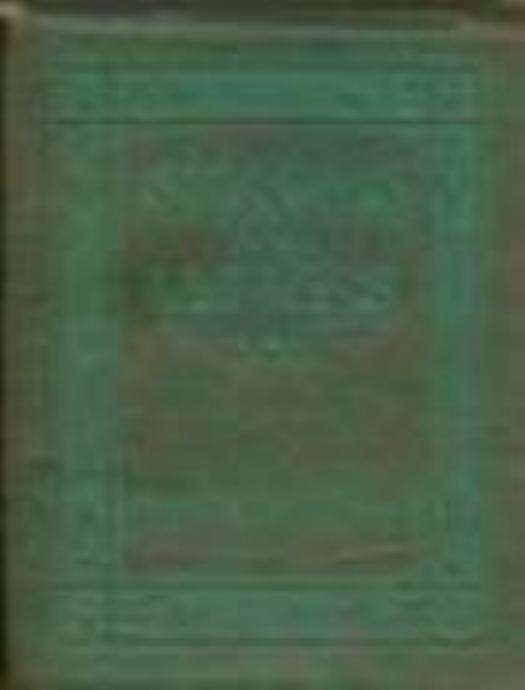Essays: first and second series by Ralph Waldo Emerson

Author:Ralph Waldo Emerson [Emerson, Ralph Waldo]
Language: eng
Format: epub, mobi, pdf
Tags: Fiction, Literature
ISBN: 9780395081259
Publisher: Houghton, Mifflin
Published: 1903-03-14T06:00:00+00:00
http://collegebookshelf.net269
porary. Well assured that their speech is intelligible and the most natural thing in the world, they add thesis to thesis, without a moment’s heed of the universal astonishment of the human race below, who do not comprehend their plainest argument; nor do they ever relent so much as to insert a popular or explaining sentence, nor testify the least displeasure or petulance at the dulness of their amazed auditory. The angels are so enamored of the language that is spoken in heaven that they will not distort their lips with the hissing and unmusical dialects of men, but speak their own, whether there be any who understand it or not.
Essay 12.
Art.
GIVE to barrows trays and pans
Grace and glimmer of romance,
Bring the moonlight into noon
Hid in gleaming piles of stone;
On the city’s paved street
Plant gardens lined with lilac sweet, Let spouting fountains cool the air, Singing in the sun-baked square. Let statue, picture, park and hall, Ballad, flag and festival,
The past restore, the day adorn
And make each morrow a new morn So shall the drudge in dusty frock
http://collegebookshelf.net271
Spy behind the city clock
Retinues of airy kings,
Skirts of angels, starry wings,
His fathers shining in bright fables, His children fed at heavenly tables. ’Tis the privilege of Art
Thus to play its cheerful part, Man in Earth to acclimate
And bend the exile to his fate, And, moulded of one element With the days and firmament, Teach him on these as stairs to climb And live on even terms with Time; Whilst upper life the slender rill Of human sense doth overfill.
Because the soul is progressive, it never quite repeats itself, but in every act attempts the production of a new and fairer whole. This appears in works both of the useful and the fine arts, if we employ the popular distinction of works according to their aim either at use or beauty. Thus in our fine arts, not imitation but creation is the aim. In landscapes the painter should give the suggestion of a fairer creation than we know. The details, the prose of nature he should omit and give us only the spirit and splendor. He should know that the landscape has beauty for his eye because it expresses a thought which is to him good; and this because the same power which sees through his eyes is seen in that spectacle; and he will come to value the expression of nature and not nature itself, and so exalt in his copy the features that please him. He will give the gloom of gloom and the sunshine of sunshine. In a portrait he must inscribe the character and not the features, and must esteem the man who sits to him as himself only an imperfect picture or likeness of the aspiring original within.
What is that abridgment and selection we observe in all spiritual activity, but itself the creative impulse? for it is the inlet of that higher illumination which teaches to convey a larger sense by simpler symbols. What is a man but
Download
Essays: first and second series by Ralph Waldo Emerson.mobi
Essays: first and second series by Ralph Waldo Emerson.pdf
This site does not store any files on its server. We only index and link to content provided by other sites. Please contact the content providers to delete copyright contents if any and email us, we'll remove relevant links or contents immediately.
The Rules Do Not Apply by Ariel Levy(4970)
Bluets by Maggie Nelson(4559)
Too Much and Not the Mood by Durga Chew-Bose(4348)
Pre-Suasion: A Revolutionary Way to Influence and Persuade by Robert Cialdini(4233)
The Motorcycle Diaries by Ernesto Che Guevara(4102)
Walking by Henry David Thoreau(3963)
Schaum's Quick Guide to Writing Great Short Stories by Margaret Lucke(3381)
The Daily Stoic by Holiday Ryan & Hanselman Stephen(3325)
What If This Were Enough? by Heather Havrilesky(3311)
The Day I Stopped Drinking Milk by Sudha Murty(3197)
The Social Psychology of Inequality by Unknown(3031)
Why I Write by George Orwell(2955)
Letters From a Stoic by Seneca(2800)
A Short History of Nearly Everything by Bryson Bill(2699)
A Burst of Light by Audre Lorde(2609)
Insomniac City by Bill Hayes(2560)
Feel Free by Zadie Smith(2482)
Upstream by Mary Oliver(2392)
Miami by Joan Didion(2369)
